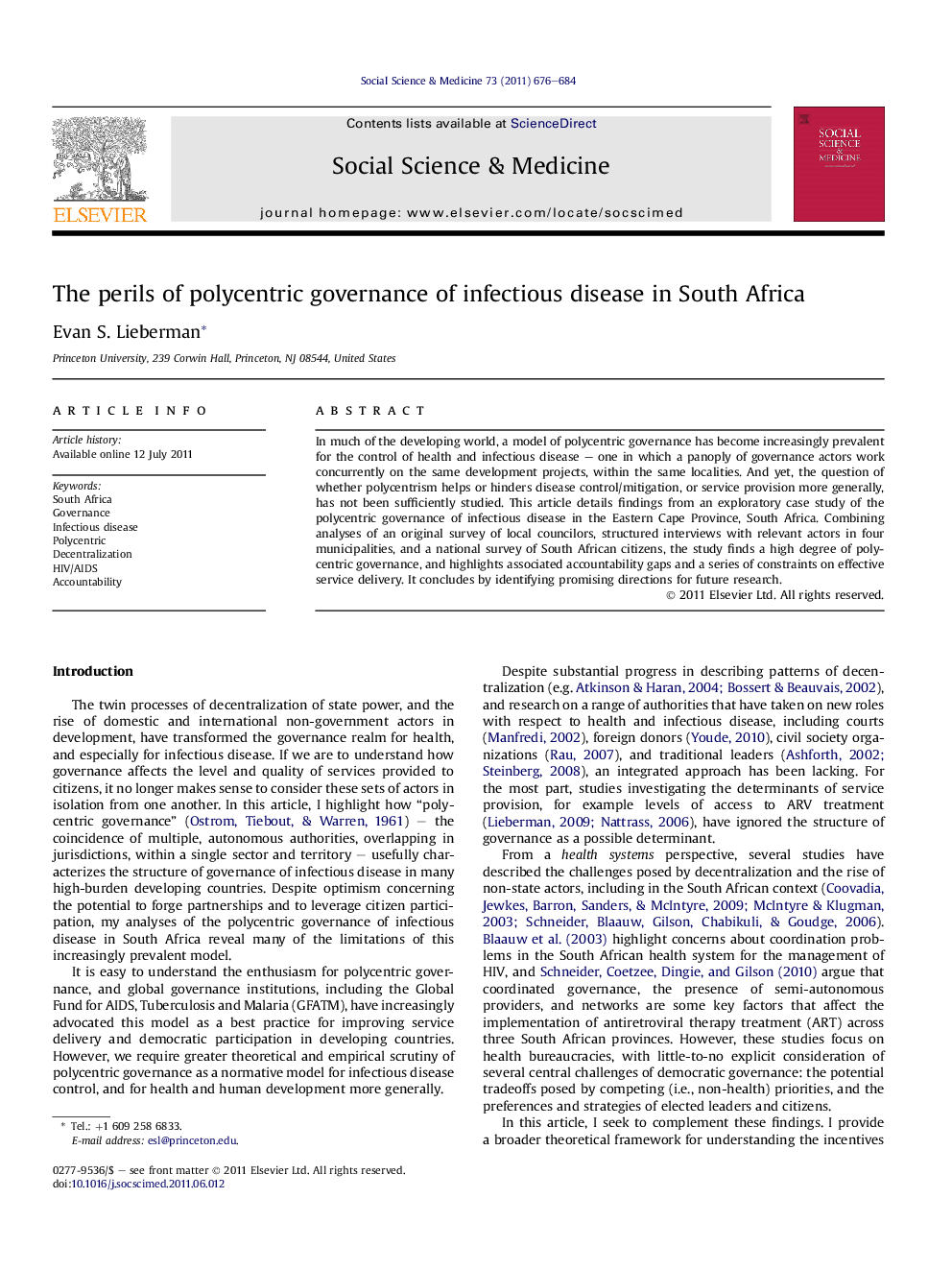| Article ID | Journal | Published Year | Pages | File Type |
|---|---|---|---|---|
| 952568 | Social Science & Medicine | 2011 | 9 Pages |
In much of the developing world, a model of polycentric governance has become increasingly prevalent for the control of health and infectious disease – one in which a panoply of governance actors work concurrently on the same development projects, within the same localities. And yet, the question of whether polycentrism helps or hinders disease control/mitigation, or service provision more generally, has not been sufficiently studied. This article details findings from an exploratory case study of the polycentric governance of infectious disease in the Eastern Cape Province, South Africa. Combining analyses of an original survey of local councilors, structured interviews with relevant actors in four municipalities, and a national survey of South African citizens, the study finds a high degree of polycentric governance, and highlights associated accountability gaps and a series of constraints on effective service delivery. It concludes by identifying promising directions for future research.
► The governance of infectious disease is more broadly diffused across actors than for other sectors in South Africa. ► Though advocated as a best practice, polycentric governance logically imposes principal-agent problems. ► Survey data reveal that citizen preferences for the governance of infectious disease are misaligned with current practices. ► A case study of Eastern Cape Province demonstrates that polycentric governance impeded the implementation of AIDS policies.
